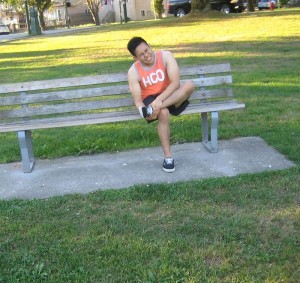Calcaneal apophysitis is characterized as sore inflammation of the growth plate in the heel. It generally develops among children ages 8-14 years old since the heel bone is not completely developed until a minimum of 14 years old. Till then, new bone is developing at the growth plate which is a weak site positioned at the rear part of the heel. If there is repeated strain on the growth plate, inflammation can arise.
What are the causes?
Stress and overusing the heel bone in sports is the main cause of calcaneal apophysitis. The growth plate in the heel is susceptible to repetitive running as well as beating on hard surfaces which results to muscle strain and sore tissue. Due to this, children and adolescents engaged in track, soccer or basketball are at high risk.
Other possible causes of the condition include a tight Achilles tendon, obesity and biomechanical issues such as a high-arched foot or flatfoot.

Indications
The indications of calcaneal apophysitis might include:
- Limping
- Pain or discomfort in the rear or base of the heel
- Walking on toes
- Tiredness
- Difficulty jumping, running or engaging in usual sports or activities
- Pain or achiness if the sides of the heel are compressed
Management of calcaneal apophysitis
The doctor might choose one or several of the following options in managing calcaneal apophysitis:
- Limit or reduce activity – the child should lessen or stop any activity responsible for the pain
- Heel support – removable shoe inserts or customized orthotic devices can provide support to the heel
- Medications – non-steroidal anti-inflammatory drug (NSAIDs) can be given to minimize the inflammation and pain
- Immobilization – in severe cases of heel pain, a cast might be utilized to promote the healing process while ensuring that the foot and ankle are immobile
- Physical therapy – stretching or other modalities can be used to promote healing of the inflamed tissues
Oftentimes, the heel pain among children recurs after it has been treated since it is still growing. The return of the pain might be an indication of calcaneal apophysitis or might be a different condition. In case the child has repeated episodes of heel pain, it is best to set an appointment with a doctor.
